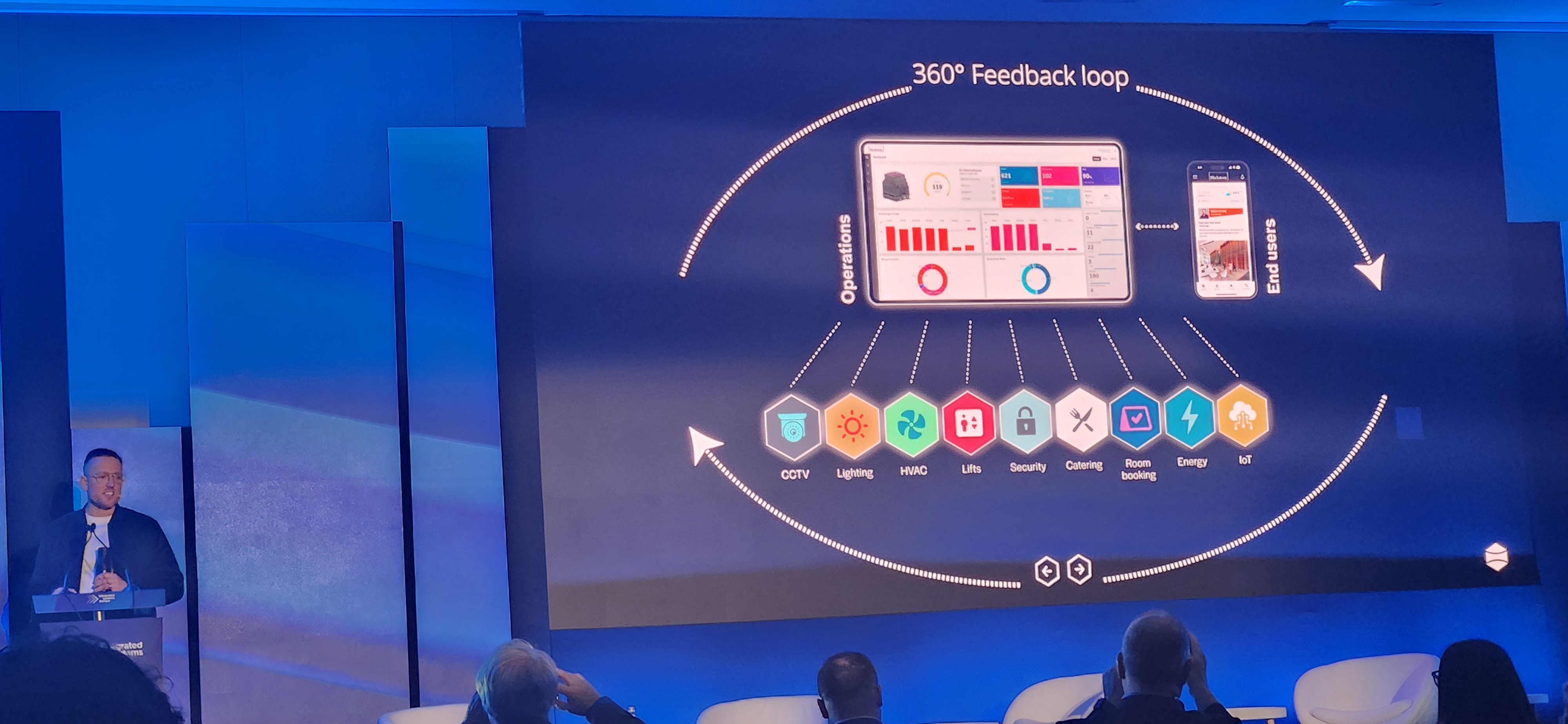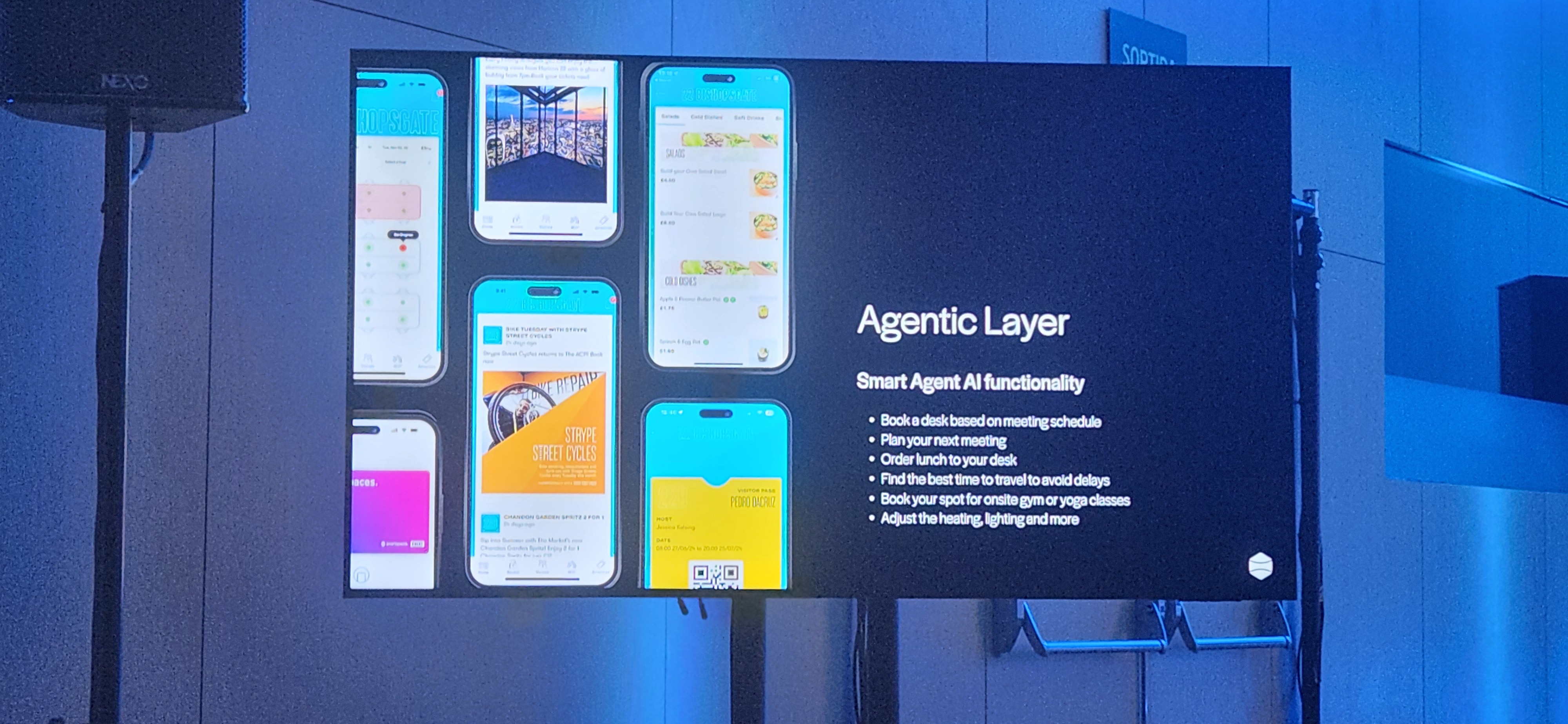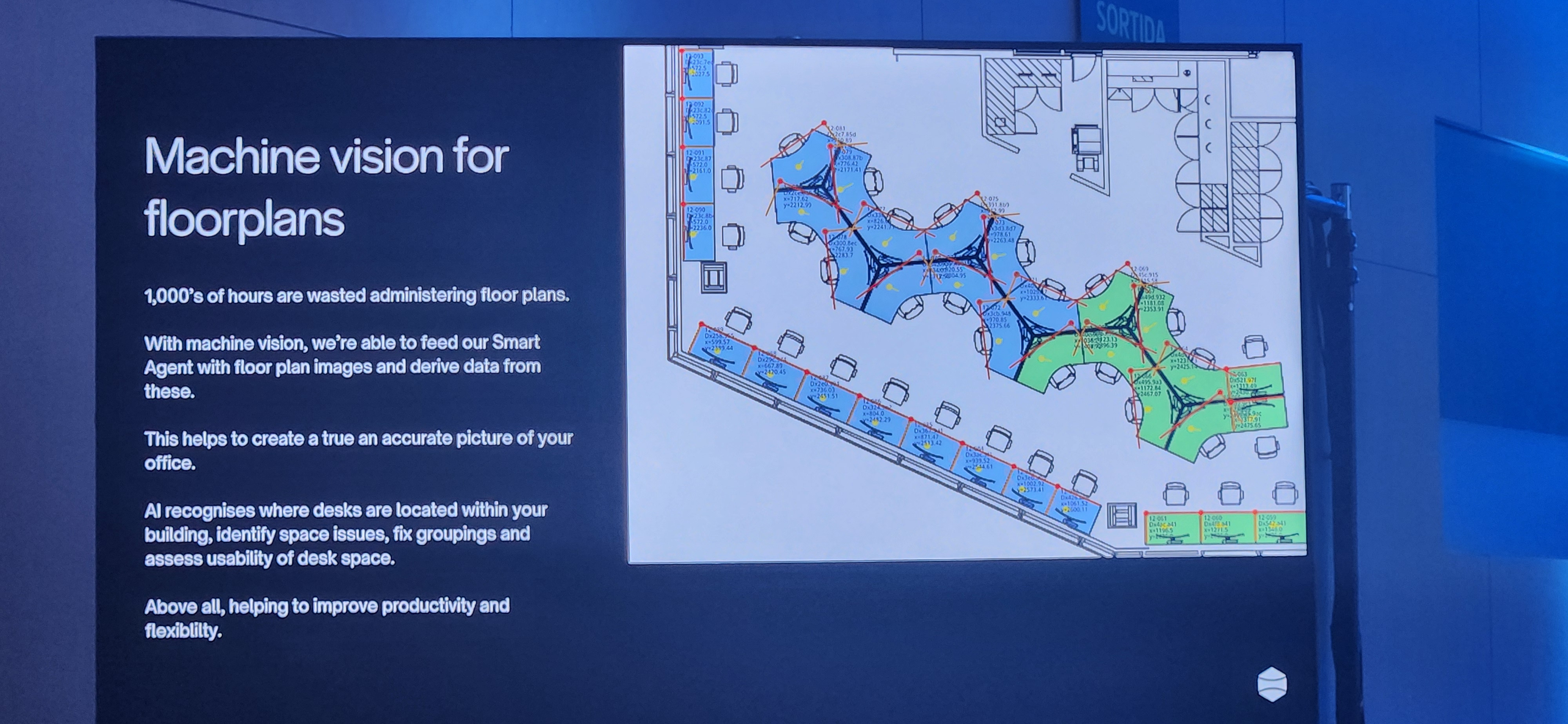ISE Insights: AI is Making Smart Buildings Even Smarter

There’s a lot of noise surrounding the use of AI. And smart buildings may be leading the way in deployment.
At Integrated Systems Europe (ISE) 2025, the session “AI in Practice: How the World's Smartest Buildings are Becoming Even Smarter” discussed how AI is revolutionizing the game for buildings in the commercial real estate sector. Led by Dan Drogman, Founder and CEO of Smart Spaces, the talk also explored why human problems must be at the core of AI product development.
Drogman started the conversation by examining how technology has evolved over the years.
“Every 10 years, we see a shift in the baseline technology adopted by businesses,” began Drogman. “In the 80s, we had the shift from mainframe computers to PC. Then, the rise of social networks. And the adoption of blockchain and cryptocurrencies.”
Now, AI has taken the world by storm. But what tangible benefits does AI really offer smart buildings? Drogman explored this question by showing the advantages AI has given his company, Smart Spaces.
“At Smart Spaces, we're building the future of AI integrated smart buildings. One thing we think gives us a huge advantage is the fact that we have the feedback loop from the end user using our workplace app. It also trains our AI in order to make better decisions in the future. AI, and specifically machine learning, has been fantastic at aggregating the data we collect,” Drogman said.

So, how does this look put into practice?
“We've had automations in our platform since day one. We have a SaaS platform where you can log in and create these automations. But we're now at the point where our platform can create automations itself. This is the key to releasing meeting rooms when people don't show up,” he explained.

Machine learning can even help predict the performance of future buildings, aiding in sustainability practices.
“We've been able to use machine learning to predict the performance of buildings in the future. This has been really handy where buildings in our portfolio are reliant on energy for supplies like CityGen, which is still fossil fuel powered. So, we can find ways to combat that in the future and have a path to meet the net zero targets. Some of the buildings we're working with at present are currently beating the Green Building Council's current targets,” he said.

By finding patterns and anomalies, AI can predict many things, like when systems require maintenance. And with AI, the future becomes a lot more personalized.
“One of the key things we've seen is tailoring user experience. Now, using AI, the rules that we have in our monitors and actions are far more dynamic and can truly personalize an environment. We've seen the software developers that we employ love this, where their lighting settings will change based on their badge, which is stored in their Apple wallet. It will also cancel meetings if they are not within the building and won't be able to make that meeting based on their badge-in-badge-out experience,” Drogman said.
Drogman is a visionary software development entrepreneur with 20 years delivering workplace technology for global enterprise brands. Founder and CEO of Smart Spaces, the seminal end-to-end smart building operating system, he consults for the world's leading real estate owners and developers of multi-tenant prime assets, HQ and campus environments including Three Mobile, Santander, Beazley, and more.
Check out the ISE website for more information on sessions like this one.
Recommended Content
LetsTalkAVbyAlexis Series: Episode 5:The Most Repeated Mistake in AV Projects: Treating AV as Equipment, Not a System

End 2025, Enter 2026 (AV Industry)





Please sign in or register for FREE
If you are a registered user on AVIXA Xchange, please sign in
While AI in smart buildings is a great thing to understand, this area is predominantly covered by the corporate real estate industry, specifically the CRE Tech industry. At the same time, AI has been a big topic for the last year or so. I think the AV industry needs to learn more about technologies in the corporate real estate industry if we are to find value in AI smart buildings. Specifically, how can we integrate AV solutions with CRE solutions? Until we do that, talking about AI in buildings in OUR industry is talk.